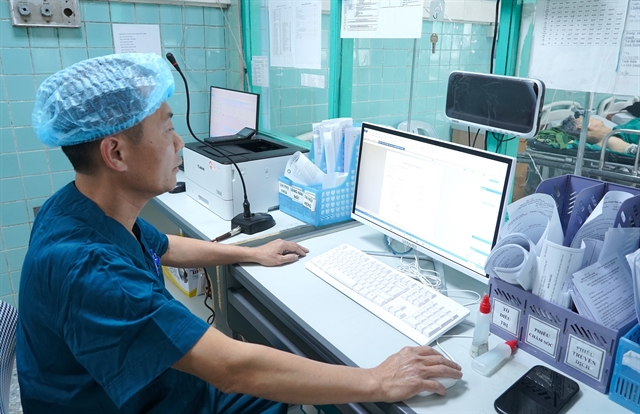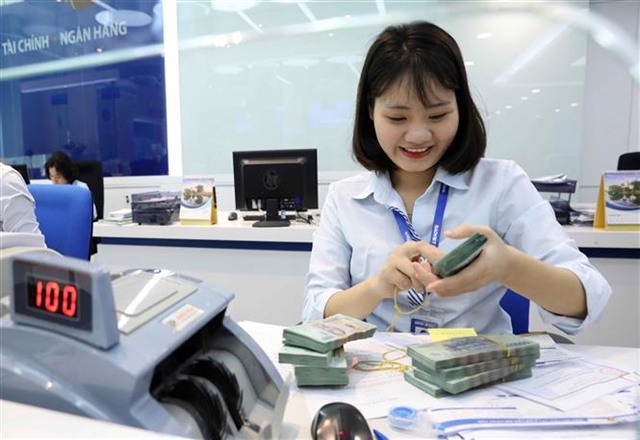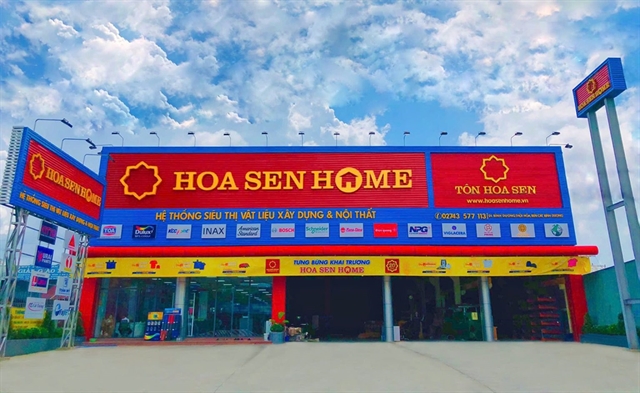 Economy
Economy

 |
| Car manufactuters run a race to offer incentives for buyers as Tết festival comes near. — Photo courtesy of Honda Vietnam |
HÀ NỘI — The expiration on December 1 of the 50 per cent reduction in registration fees for domestically produced and assembled cars has raised concerns about a potential downturn in the market.
Domestically produced vehicles, which benefitted most from the fee reduction, are expected to face challenges in maintaining sales momentum. The final months of the policy were marked by heightened market activity, with customers rushing to capitalise on the incentives. Many even signed contracts to secure benefits, though they would only receive vehicles after the policy ended.
The 50 per cent reduction in registration fees for domestically produced and assembled cars under Decree No. 109/2024/ND-CP provided a significant boost to Việt Nam's automotive market from September 1 to November 30, according to local car experts.
This initiative, aimed at stimulating domestic car sales, led to a surge in demand as customers took advantage of reduced costs combined with promotional offers from major manufacturers like Honda and Toyota. Popular models such as the Honda City, CR-V and Toyota Vios saw increased sales due to additional discounts and incentives.
The combination of the registration fee reduction and manufacturers' aggressive promotional strategies led to a remarkable sales spike during September and October. However, the post-incentive period may test the resilience of the domestic automotive industry, requiring further strategies to sustain growth and address the predicted decline.
Data from the Vietnam Automobile Manufacturers Association (VAMA) reveals a strong growth in Việt Nam's car sales in September and October.
Total car sales reached approximately 60,000 vehicles in October, achieving a 10 per cent increase compared to the month before. In September, over 55,000 vehicles were sold, up 30 per cent compared to August.
Domestically produced cars benefited significantly from a 50 per cent reduction in registration fees, helping customers save between VNĐ17 million and VNĐ235 million per purchase.
Challenges ahead
A recent report from the General Statistics Office highlights significant trends in the automotive market for the first 10 months this year, with the output of domestically produced and assembled cars reaching 281,400 units. This marks a 12.1 per cent increase compared to the same period in 2023. Meanwhile, the number of imported cars totalled 143,084 units, indicating a substantial 37.8 per cent increase year-on-year.
Many businesses report that inventory from 2023 remains largely unsold, indicating a slowdown in demand. The recent 50 per cent reduction in registration fees is only applicable for three months, which may not provide enough motivation for consumers to purchase.
To address the surplus and stimulate sales, car manufacturers and dealers are implementing aggressive incentive programmes. These programmes are essential to encourage purchases and reduce excess inventory. Sales for the first 10 months of the year were around 380,000, indicating a surplus of about 100,000 vehicles. Meanwhile, many businesses are grappling with unsold inventory from 2023 as well.
The temporary 50 per cent reduction in registration fees prompted car manufacturers and dealers to offer substantial incentives to stimulate sales and reduce inventory.
After the policy ends, a sharp decline in sales of domestically produced cars is expected. The demand spike from September to November, driven by incentives, may lead to a drop-off in December 2024.
Domestic manufacturers will face increased competition from imported vehicles. The influx of new car models and upgraded versions will further challenge local producers.
In 2024, the expected output for domestically produced and assembled cars is over 350,000 vehicles, reflecting minimal growth from 347,400 vehicles in 2023. In contrast, imports are anticipated to rise significantly to over 180,000 vehicles, up from 118,942 in the previous year.
The growth of imported vehicles illustrates their increasing competitiveness, complicating efforts to reclaim market share for domestically produced cars.
Experts warn that the end of the 50 per cent reduction in registration fees may lead to a challenging phase for the Vietnamese car market. Domestic manufacturers will need to innovate and adapt their business strategies to maintain market presence.
The ability to balance supply with market demand and implement flexible strategies will be crucial to navigate this evolving landscape. The industry's adaptability will be a key determinant of its success in the future. — VNS




